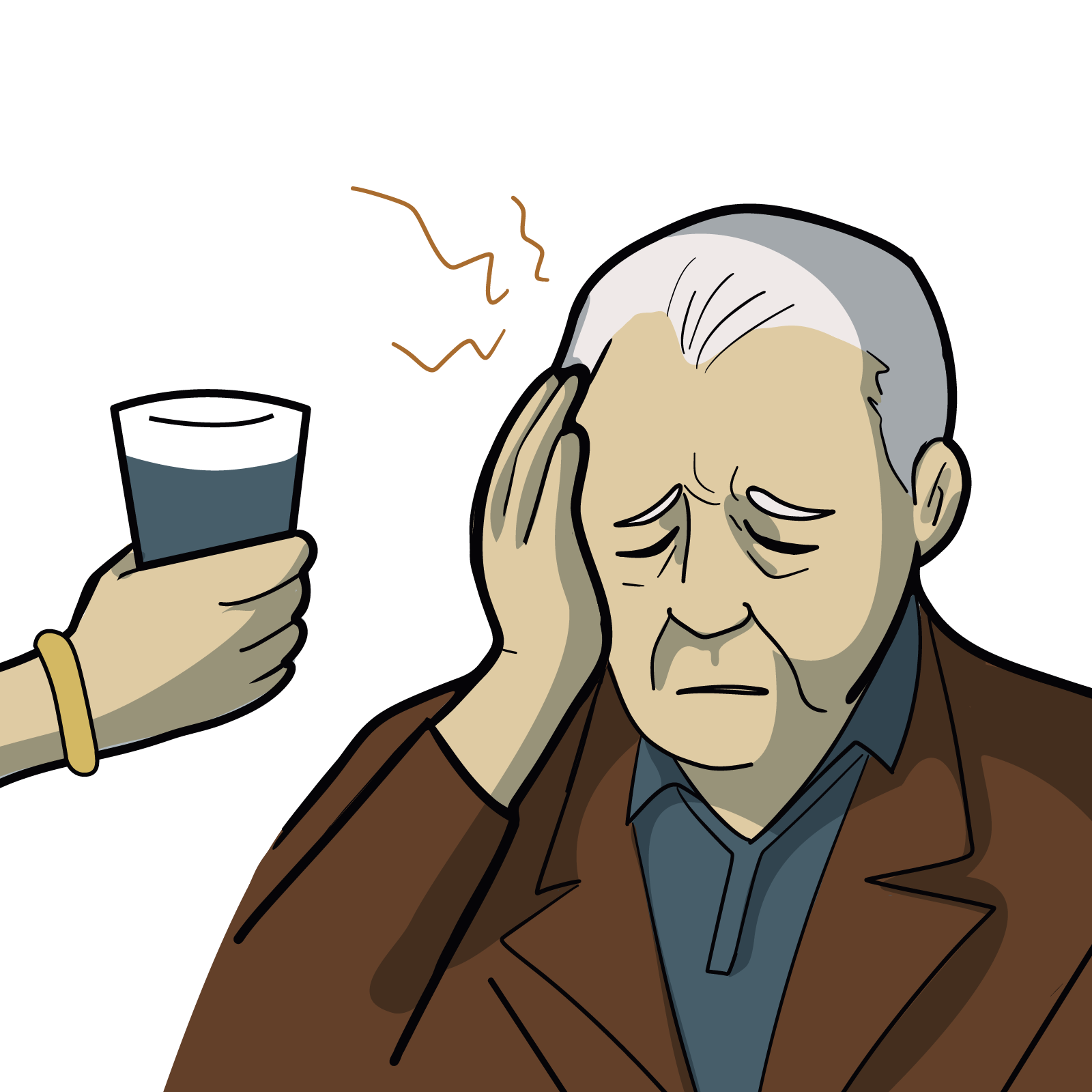Chapter 17. Well-Being
WB.31: Deep Dive – Headaches and Mental Health
Approximate reading time: 4 minutes
Tension headaches, a common type of headache, are closely linked to stress, sleep disturbances, and emotional factors like depression. These elements make people more sensitive to pain, which can lead to more frequent and intense headaches (Fernández‐de‐las‐Peñas et al., 2017). Stress, in particular, plays a significant role by lowering the pain threshold, meaning that even minor triggers can cause headaches in those who are already prone to them (Cathcart et al., 2010). This is especially true for individuals who regularly experience tension headaches, as they naturally have a heightened sensitivity to pain (Cathcart et al., 2012). While the exact process of how stress exacerbates these headaches is still being studied, it’s clear that managing stress can be key to reducing the frequency and severity of tension headaches. Furthermore, research has shown that daily stressors and mental strain can increase the likelihood of developing a headache, highlighting the importance of psychological well-being in managing tension headaches (Viero et al., 2022).
Headache is a continuous pain anywhere in the head and neck region.
Sinus headaches are caused by inflammation of the sinuses caused by an infection; allergic reaction can also cause sinus headaches, which are experienced as pain in the cheeks and forehead.
Migraine headaches are a type of headache thought to be caused by blood vessel swelling and increased blood flow (McIntosh, 2013). Migraines are characterized by severe pain on one or both sides of the head, an upset stomach, and disturbed vision. They are more frequently experienced by women than by men (American Academy of Neurology, 2014).
Tension headaches are triggered by tightening/tensing of facial and neck muscles; they are the most commonly experienced kind of headache, accounting for about 42% of all headaches worldwide (Stovner et al., 2007). In the United States, well over one-third of the population experiences tension headaches each year, and 2–3% of the population suffers from chronic tension headaches (Schwartz, Stewart, Simon, & Lipton, 1998).

Recent studies have shown that not sleeping well can make tension headaches and migraines worse (Fernández‐de‐las‐Peñas et al., 2017). Stress is also a big factor in causing these headaches. When people are stressed, it affects their body in a way that makes them more likely to get headaches (Cathcart et al., 2010). People who often have tension headaches tend to feel pain more intensely, and stress can make this pain feel even worse (Cathcart & Pritchard, 2012). Additionally, everyday stress and mental strain can increase the chances of getting a headache, highlighting the importance of managing stress for people who suffer from migraines and tension headaches (Viero et al., 2022)
Psychological treatments can bring relief to people with headaches, including those with chronic pain, like migraines or tension-type headaches. For example, a study by Eccleston and colleagues in 2002 found that these treatments are especially effective for children and teenagers, significantly reducing their pain. Another study (Williams, et al., 2020) showed that adults with chronic pain, including headaches, benefited from psychological therapies like cognitive behavioural therapy (CBT), which helped reduce their pain and stress.
Children with chronic pain, including headaches, also seem to benefit from these treatments (Fisher et al., 2014). A program combining education about headaches and relaxation techniques greatly reduced headache attacks and improved life quality for those suffering from headaches (Andrighi et al., 2016). Managing stress could be key in treating these headaches (Viero, 2022).
In summary, these studies highlight how psychological treatments, including stress management and relaxation techniques, can be helpful in reducing headache pain and improving the quality of life for both children and adults.
Image Attributions
Figure SUP WB.8. Tension headaches by Rachel Lu is licensed under a CC BY-NC-SA license.
To calculate this time, we used a reading speed of 150 words per minute and then added extra time to account for images and videos. This is just to give you a rough idea of the length of the chapter section. How long it will take you to engage with this chapter will vary greatly depending on all sorts of things (the complexity of the content, your ability to focus, etc).

